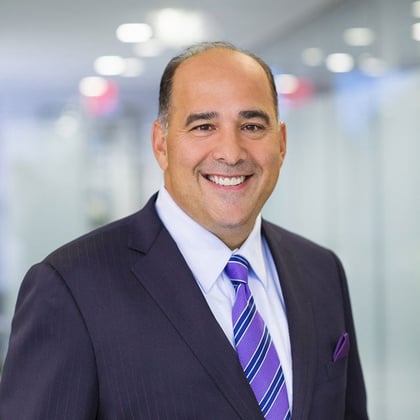What You Need to Know
- Technology is helping advisors meet their clients' needs during the pandemic.
- Younger investors embrace — and even demand — technology.
- Financial services lags other industries in providing real-time services.
Advisors are increasingly relying on technology to meet their clients’ evolving demands, and those who don’t embrace it will find it increasingly hard to compete, according to industry experts who spoke Thursday during the Broadridge Financial Solutions webinar “Leadership Lessons for 2021: Meeting Client Demands Through Technology.”
“The last year has highlighted the resiliency and adaptability of every human” in the face of the COVID-19 pandemic and the wealth management industry has been “no exception,” Chris Perry, Broadridge president, said. “When forced to move into a virtual world, financial advisors really stepped up and found new ways to form deeper connections with their clients.”
Amid increased volatility last year, “clients were more worried than ever and the power of technology really allowed advisors to bridge that service gap and continue to provide their clients with the attention they need and gave them the confidence to stay in this game,” he pointed out.
Agreeing, Michael Alexander, president of wealth management at Broadridge, said, “COVID has been an enabler and an accelerator” of technology adoption. And it presents “an opportunity if you look at it the right way,” he said. This has come at the same time that there has been a “rise of new investors” who are younger than traditional investors, he noted.
“For the first time, we’re getting a lot of clarity around how” those younger investors “want to invest and interact, and it’s clearly in a highly personalized way,” Alexander explained. “They want to be connected” to social media and “they are going to be validators and not delegators, and they’re going to want to be very involved in decision-making.”
That is good for advisors because “it means that personal service and advice really matter,” according to Alexander.
‘Embrace Digitization or Perish’
A “key trend is that you either need to embrace digitization or perish if you’re an advisor or firm — it’s not an option anymore,” Alexander said, noting data shows that advisors who don’t have the technology they need are more likely to leave the sector. Almost 80% of advisors surveyed felt their tech was inadequate and more than 50% of that group were thinking of changing jobs, he said.
Another trend is that RIAs are “now driving the industry,” Alexander said, noting they have outgrown the other segments and are “really driving the pace of change and innovation.”
Looking to the future, he predicted: “I think the pace of change and transformation’s going to continue to accelerate and it’s going to result in much more tech-savvy, digitized personal processes for clients, improving the user experience dramatically over the next year.”
As a result, advisory firms are “going to need to find ways to modernize their platforms and mutualize their investments, their innovation” and “build scale — and I think you’re going to start to see a much greater focus on integration and the ability to sort of have an advisor or a client app store so that they can quickly create [the] best-in-class system that they need,” he predicted.
What Clients Want From Advisors
At the end of the day, “clients still just want us to know them, guide them and make it easy,” according to Ilan Davidovici, principal of Client Experience at Edward Jones.
Almost all Edward Jones clients reached out to the firm’s 19,500 or so advisors when the pandemic started and “that continued throughout 2020,” he noted.
“Human connection is what we all want” — but digital tools have helped advisors to achieve that, he noted.









 March 01, 2021 at 04:07 PM
March 01, 2021 at 04:07 PM











